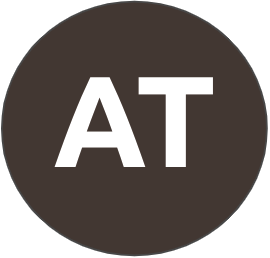Pre-Conference Clean Energy Permitting Reform Updates
As Ben and Jenn discussed in their May 20 Summer Lobby Training, clean energy permitting reform is one of our primary asks in our June lobby days (along with the PROVE IT Act). But there have been a lot of actions related to permitting over the past year, and especially new permitting-related rules from a number of federal agencies over just the past month. Congressional offices may have questions about these, or want to discuss them, so I put together a summary that also lives on our Reviewing Primary and Secondary Asks page:
2024 Clean Energy Permitting Reform Updates
Over the past year there have been a number of Congressional and federal agency actions relevant to the clean energy permitting reform landscape. Let’s get up to speed on what’s happened in this policy area!
The Fiscal Responsibility Act
In May 2023, Congress passed the Fiscal Responsibility Act (a.k.a. the debt ceiling deal), which included a number of reforms to help federal agencies work on project permitting in a more efficient manner. For example, when multiple federal agencies are involved in the permitting of an energy project, it would have them designate a lead agency in charge, and all agencies would work together on a single environmental review document rather than each agency creating duplicative work.
Read here for more details about permitting reform in the Fiscal Responsibility Act.
DOE transmission permitting rule
Relatedly, the Department of Energy (DOE) published an electrical transmission line permitting rule in April 2024 that applies the requirements of the Fiscal Responsibility Act. It establishes the DOE as the lead agency that will coordinate with other federal agencies to permit transmission projects on federal lands, and requires that all of those agencies work on a single environmental document.
Read here for more details about DOE’s transmission rule.
CEQ NEPA permitting rule
And just a few days later, the White House Council on Environmental Quality (CEQ) finalized a rule to “modernize the federal environmental review process under the National Environmental Policy Act (NEPA).” This rule includes a number of important components:
- Like the DOE’s transmission rule, it implements the permitting changes made in the Fiscal Responsibility Act, but for all projects with federal NEPA reviews
- It tells federal agencies that they should consider climate change and environmental justice impacts in environmental reviews, and that they should do “meaningful public engagement” during the permitting process. Read CCL’s press release about this news.
- It expands the application of categorical exclusions, which are the fastest type of permitting environmental reviews that are applied when there's good reason to be confident that a certain type of project won't have significant adverse impact.
Read here for more details about CEQ’s permitting reform rule.
DOE categorical exclusion rule
On the same day and on the same subject, the DOE also issued a separate rule that adds a permitting categorical exclusion for certain energy storage systems and solar projects on disturbed lands, and for upgrading electrical transmission lines of any length.
Read here for more information about DOE’s categorical exclusion rule.
DOE transmission corridors of national interest designations
In May 2024, the DOE also took a big step toward designating certain areas as National Interest Electric Transmission Corridors (NIETCs). This is an outcome of the 2021 bipartisan infrastructure bill, which clarified that the DOE can determine that it’s in America’s national interest to quickly build electrical transmission lines in certain corridors in order to expedite the permitting process in these designated areas.
Read here for more information about DOE’s NIETC designations.
FERC orders on transmission permitting, planning, and cost allocation
In May 2024, the Federal Energy Regulatory Commission (FERC) issued two new rules. The first (called Order 1977) is related to NIETCs as well. It states that FERC has the authority to issue permits to construct transmission lines in NIETCs if a state has denied a siting application, as was affirmed by the bipartisan infrastructure bill. It also requires that transmission project developers create community and tribal engagement plans.
FERC’s second new rule (called Order 1920) requires electrical transmission providers to take several important steps to improve regional transmission capabilities. These include long-term proactive planning for the power grid’s needs over the next 20 years, accounting for the transmission project cost benefits of factors like improved grid reliability and efficiency, allocating the costs of these projects proportional to the expected benefits of the new transmission capacity, and considering cost-effective alternative technologies like replacing existing power lines with more advanced materials.
Read here for more information about FERC’s transmission rules.
EPA power plant rules
In April 2024 the Environmental Protection Agency also finalized climate pollution rules for fossil fuel power plants. The rules will require that many existing coal and new natural gas power plants implement carbon capture and storage technology, or take other steps to reduce their climate pollution by about 90%. Although this rule isn’t directly related to permitting reform, it does tip the financial scales even further toward cheap and clean sources of energy, which means that a faster permitting process will benefit technologies like solar and wind power even more than is already the case.
Read here for more information about EPA’s power plant rules.
We still need Congress to pass clean energy permitting reform
While this is quite a lot of good progress towards permitting and building clean energy infrastructure faster, there’s still much more to do. For example, a bipartisan permitting reform package could include legislation like the BIG WIRES Act to increase America’s electrical transmission capacity, and specific reforms to expedite the permitting process for other clean technologies like geothermal, hydroelectric, and nuclear power.
Search Forums
Forum help
Select a question below
CCL Community Guidelines
- Discuss, ask and share
- Be respectful
- Respect confidentiality
- Protect privacy
CCL Blog Policy Area Categories
- Price on Carbon
- CBAM
- Clean Energy Permitting Reform
- Healthy Forests
- Building Electrification and Efficiency



